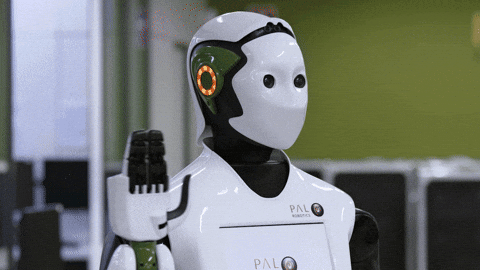Future travel could get even more futuristic if a French company called Akka Technologies has its way. The company is shopping around an idea for a flying train—or rather, a plane that sheds its wings and takes a track when it lands. The transformation process resembles nothing so much as a scene in a Marvel movie. (See for yourself in this simulation—the plane doesn’t exist yet.)
The motivation behind Akka’s "Link & Fly" is purely practical: The wings that come off to help airports facilitate quick turnovers. That means more flights can be scheduled in a day and more passengers could use stations closer to home. People could work in cities too far away for a driving commute. The plane is designed for smaller loads and shorter routes.
The process would minimize the airport part of the flying experience. Passengers would board a pod at a local station, undergo screening and security procedures while on the train, then at the airport a cockpit and wings would be added and the machine would take off from the runway, fully a plane. The Akka vehicle is about the size of an Airbus A320 and could carry up to 162 passengers. Another conversion is possible too: The seats could be removed to turn the passenger vehicle into a cargo plane. Neat. But is it possible?
“After cars go electric and autonomous, the next big disruption will be in airplanes,” said Akka’s Chief Executive Officer Maurice Ricci.
“Planes need to become more efficient, less polluting and less noisy,” said Ricci. “Our role is to point our customers to technologies of the future.” The company pitched its concept to Boeing and other air giants at the Paris Air Show, an annual showcase of new aeronautics concepts, products, and technologies, but so far, no commitments have been announced. The flying train, as yet, is a dream.
But if some brave company steps up, the future might be enthusiastically embraced by the public. With record numbers of people flying, relieving congestion at airports and on runways is becoming a challenge for busy terminals around the world. Crowded parking lots, airports, and planes have contributed to an experience that is stressful even before the plane is boarded. Reducing that stress and congestion could have an impact on the behavior of those who take to the skies.
Drunk and disorderly passengers are making life difficult for flight attendants and fellow passengers. A Spirit Airlines passenger was convicted of sexually assaulting his seatmeat. However, a masturbating Southwest Airlines passenger got off scot-free. (Meanwhile, apparently consensual sex in flight is surprisingly common.) And that’s just the humans behaving badly.
Dogs are making the skies unfriendly for passengers unlikely enough to be bitten by a support animal. Cats are booting allergic passengers off flights. Airlines for America, an airline trade association, estimates that from 2016 to 2017 the number of emotional support animals aboard U.S. commercial flights grew from 481,000 to 751,000 — a 57 percent increase in one year. Something has to change in air travel. A new plane could do the trick. Or maybe we just need more robots.
KLM is introducing helper robots called Care-Es that guide passengers to the gate and carry their luggage for them. These little robots are about the size of a large suitcase and connect to airport data to determine a passenger’s gate, as well as locate restrooms, restaurants, or shops on request. The robot will keep tabs on your boarding time and make sure you don’t miss the flight. It also has personality, and whistles or hums as it does its job. It even acts sad when it says goodbye to a passenger.
So even if a flying train is still pretty far off on the horizon, the future is here, in the form of robot friends who do what many humans cannot: be pleasant and helpful.














 rPolitics/Reddit
rPolitics/Reddit @leftynavyseal/Bluesky
@leftynavyseal/Bluesky rPolitics/Reddit
rPolitics/Reddit @skippyoz/Bluesky
@skippyoz/Bluesky rPolitics/Reddit
rPolitics/Reddit rPolitics/Reddit
rPolitics/Reddit rPolitics/Reddit
rPolitics/Reddit
 jordi baste robot GIF by No pot ser! TV3
jordi baste robot GIF by No pot ser! TV3 sing schitts creek GIF by CBC
sing schitts creek GIF by CBC Well Done Ok GIF by funk
Well Done Ok GIF by funk Two Face Ernst GIF by ZWEIMANN
Two Face Ernst GIF by ZWEIMANN
